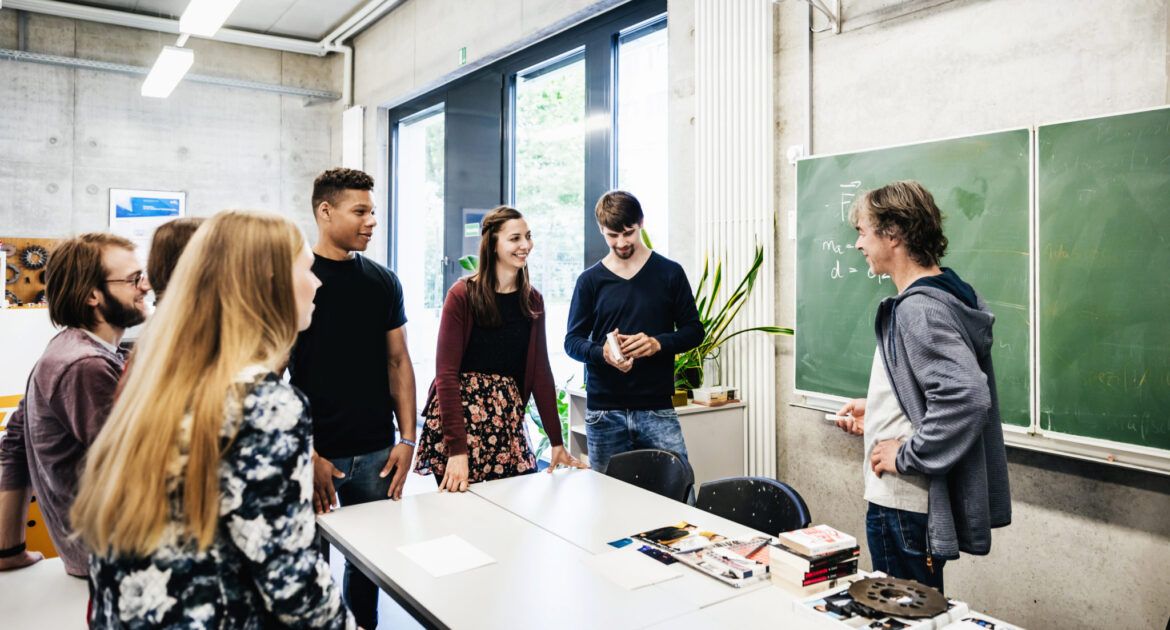Many lecturers refer to all their teaching sessions as ‘lectures’. A lecture is a specific type of teaching method; much teaching and learning in higher education uses a variety of methods. In this article, I will use the term ‘session’ to refer to any teaching and learning experience designed for small or large groups of students.
Students do not appreciate teachers who are unprepared or whose teaching sessions are vague and unstructured. A good session is not only well structured but also has variation and rhythm. Like an enjoyable piece of music, a good session has rhythm and, to develop the musical theme further, structure, variations in pace, loudness and softness, periods of reflection and periods of activity. In your sessions, as in music, there should be a smooth transition from and links between one passage and the next.
There are three basic elements to a session: beginning, middle and end; or introduction, development and conclusion.
Introduction
First impressions count and a well-planned and well-delivered introduction to your teaching and learning session will set the tone for the rest of the session. An effective opening, particularly the first time you meet a new group of students, is crucial. Here are some general guidelines which you should think through and allow time for in your planning.
- Make sure you turn up on time for the session; lateness looks unprofessional and students might feel you don’t respect them.
- If possible, arrive before your students and get your resources and equipment setup so you can make an immediate start.
- Begin promptly and don’t wait for latecomers; other students will resent it when they have made the effort to be on time.
- Make a firm and decisive start.
- Speak clearly and loudly to gain attention and provide an overview of the session, sharing aims and learning outcomes as appropriate.
- There should always be an introduction to the session. Even if it is a laboratory or practical it is useful to ‘touch base’ with students to review progress and to identify any issues of general concern.
Effective teaching and learning requires continuity between sessions. As a general rule, the introductory phase should include a review and recap of the previous session. This can be done in several ways:
- ask students to recall what you and they did last time
- use lower-order questions to recall content and check learning
- use higher-order questions to extend learning and thinking. This can be a useful way to link to the current session
- it might be appropriate, particularly in professional courses, to ask if anyone has been able to apply their learning since last time or if they have any examples or experiences which illustrate the previous session
Development – the main body of the session
This is where the content is covered and the intended learning outcomes achieved. Effective teaching and learning uses a variety of methods which are clearly structured and timed with seamless transitions. It is important to estimate and plan the length of time needed for activities and share this with students otherwise they may lose motivation if things take too long or drift to a vague conclusion. Using active learning methods – such as discussion; questions; problems – will allow opportunities for emergent outcomes and unanticipated, but relevant, changes in direction.
In general, for a whole group session, there should be a change approximately every twenty minutes. This will vary according to the students and it isn’t a formula which has to be rigidly adhered to; if all the students are involved and interested then it is acceptable to continue with that input or activity. Reflective teachers recognise the signs which indicate when it’s time for something different. Your planning should ensure that the main body of the session allows for regular checks on learning and opportunities for people to show what they have learned. Assessment doesn’t have to be formal; it can be a discussion, a series of questions or asking students for examples which demonstrate learning. A typical session might include the following elements:
- introduction and recap
- begin by asking rather than telling. Try to establish what students already know
- teacher talk/input
- student activity
- feedback and discussion of activity and conclusions drawn
- another, different activity
- feedback and discussion
- conclusions
- summary of learning
Ending
The ending should round out the whole session and bring it to a clear and crisp conclusion. Good planning will obviate the danger of the session simply fading away or stopping abruptly without any real review of the learning or indication of what will happen next. The elements of a satisfactory ending could include, for example:
- a clear statement or signal that the session is moving into its final phase
- a review of the learning
- summary of the main learning points
- a plenary activity
- link forward to next session with a brief statement of content. Inform students of any reading or other tasks they need to do in preparation
- prompt finish. You might wish to thank the students for their attention and effort
In future articles, I will look at some specific teaching and learning methods, such as: discussion; seminars; case studies, and the lecture.





Leave a Reply